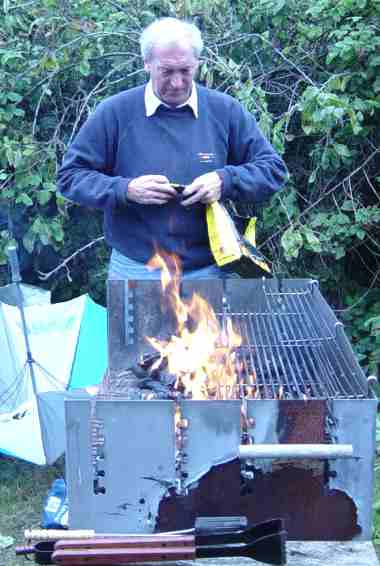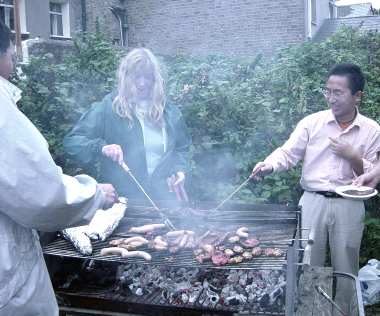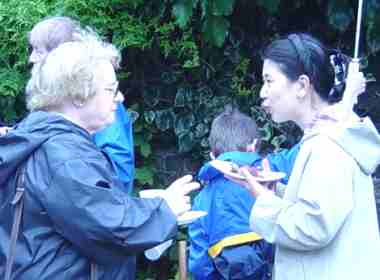

| NEWSLETTER |
| 1. | Programme: Meetings now in the United Arts Club |
| 2. | UNESCO Heritage Sites |
| 3. | The Art of Bonsai |
| 4. | Society's Annual Barbecue |
| 5. | Language School |
| 6. | Email Database |
| 7. | Reminder |
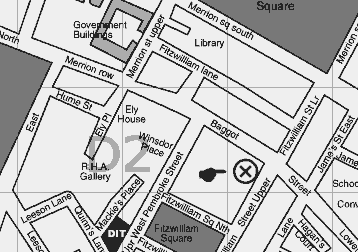
| He began with an extract from a film previously shown to the Society about 15 years ago showing the Potala Palace in Lhasa, Tibet, which was being renovated in 1989. Originally built in the 7th Century on top of a hill 130 metres above a valley, the buildings are 170m high. Extensions were carried out in 1645, 1690 and 1920. |
| Next was the Imperial Palace in Beijing better known as the Forbidden City. This was from a video made in 1996 during the visit of the ICCS delegation led by Fergus Gaines. |
| Next was from one of the recently listed sites which is joined as part of the Beijing Palace, that is the Imperial Palace at Shenyang. This was visited by our President David Judge in May 2004 and his digital photos were incorporated into the video. | 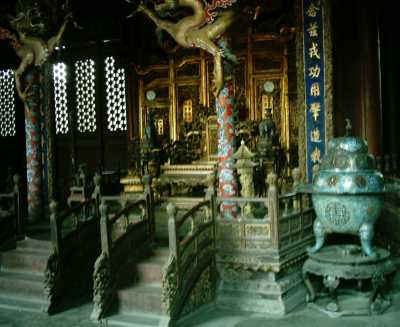 |
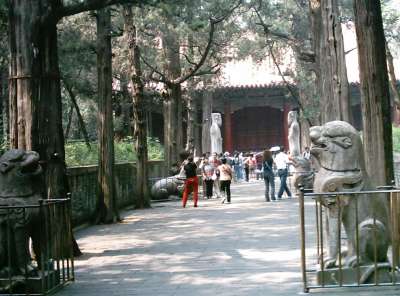 | Next were some photos of Qufu, also taken by David Judge. Qufu was the birthplace of Confucius (551 - 479 BC) and includes a Mansion which has 480 rooms and dates from the 16th Century, a Temple and the largest artificial forest in China, which is also a cemetery for the Kung family. |
| The Ancient town of Lijiang was featured in the TV series "Above the Clouds" about 8 years ago. It was damaged by an earthquake just before Norman visited there in 1998. | Lijiang has been the home of the Naxi people for 800 years and a feature of the town is the way a river divides so that most houses have a stream flowing past their front door. |
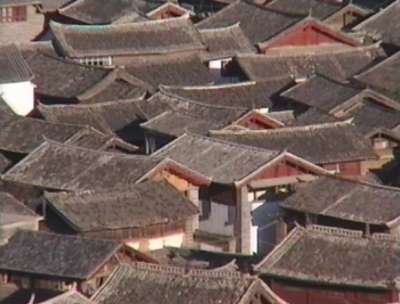 | 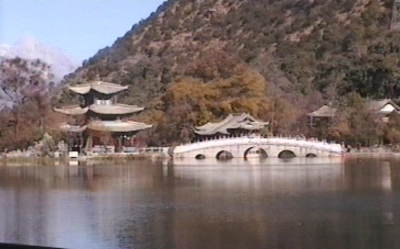 |
| The Temple of Heaven in Beijing was built circa1420. It was a sacrificial complex, one of China's most sacred places for 5 centuries. There are Altars to Heaven, Earth, Sun, Moon, etc. This segment of the Video gave us our only glimpse of the cameraman who took a few steps across in front of his own camera. | 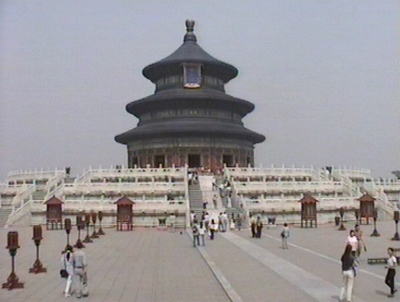 |
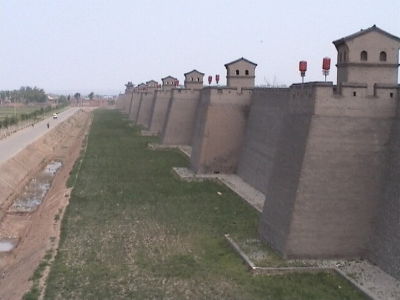 | 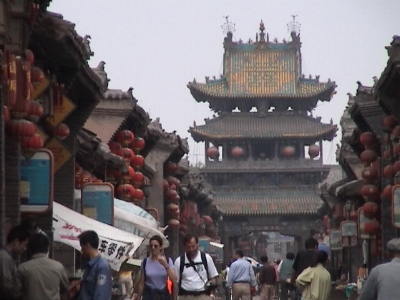 |
| Norman's most recent trip to China in May 2004 included a visit to the Ancient City of Pingyao in Shanxi Province. This dates from the 7th Century BC but was mainly built in the 14th Century. This is a Ming city whose 6 kilometres long walls are still intact despite being bombarded by the Japanese, who took the city in the war. The shell holes can still be seen. | Pingyao was the financial centre of China in the 18th Century and controlled half of China's finances. This was the predecessor of modern banking. Norman admitted that he had never seen the Great Wall on any of his visits to China but hopes to see it and some of the other Heritage sites next time. |
| Paul so enthused his audience on the subject of Bonsai that all were considering trying to find just the perfect tiny sapling to train into Bonsai state. This is done by careful pruning of root and branch and not neglecting watering. | 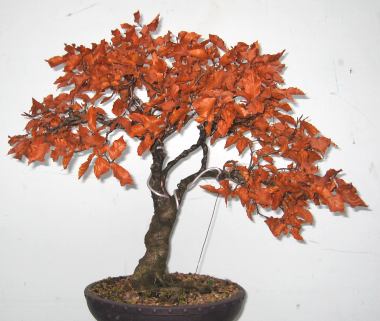 |
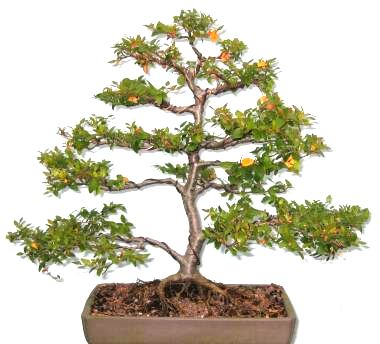 |
Paul had brought along ten or so of his own miniature trees, each exquisite. His own Bonsai enthusiasm, of over twenty years, has led to the creation of his own collection of about 100 Bonsai which he keeps outdoors all year. |
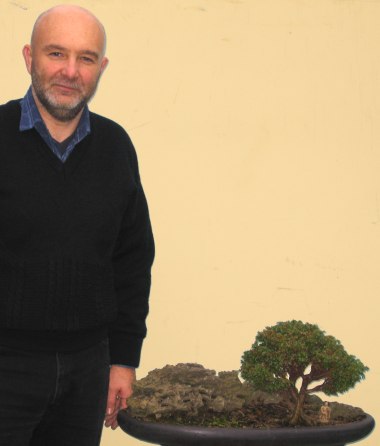 |
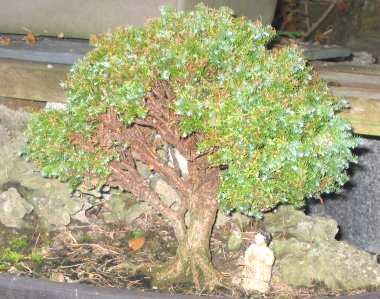 |
| The art of Bonsai is originally Chinese. In about the year 900 AD, Bhuddist monks brought Bonsai to Japan and from where the art came to Europe in the 1870s as part of the mania for all things Japanese, and finally, in the 1960s, to the UK and the USA. | The Cultural Revolution in China nearly wiped out the art, which has now revived. |
 |
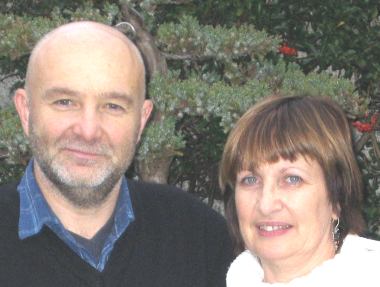 |
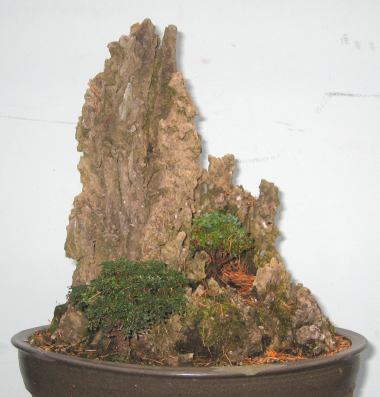 |
The small 'Trees' - spruce, maple, larch, even cotoneaster - symbolize spirituality and the energy of the universe. To create your own Bonsai landscape all that is needed is your sapling, a low pot, grit, garden loam end peat,perhaps wire, rocks and tiny figures. Plus plenty of patience! 'Listen to your tree' , says Paul Homan, whom the Society heartily thanks for sharing with us his knowledge of the art of Bonsai. |
